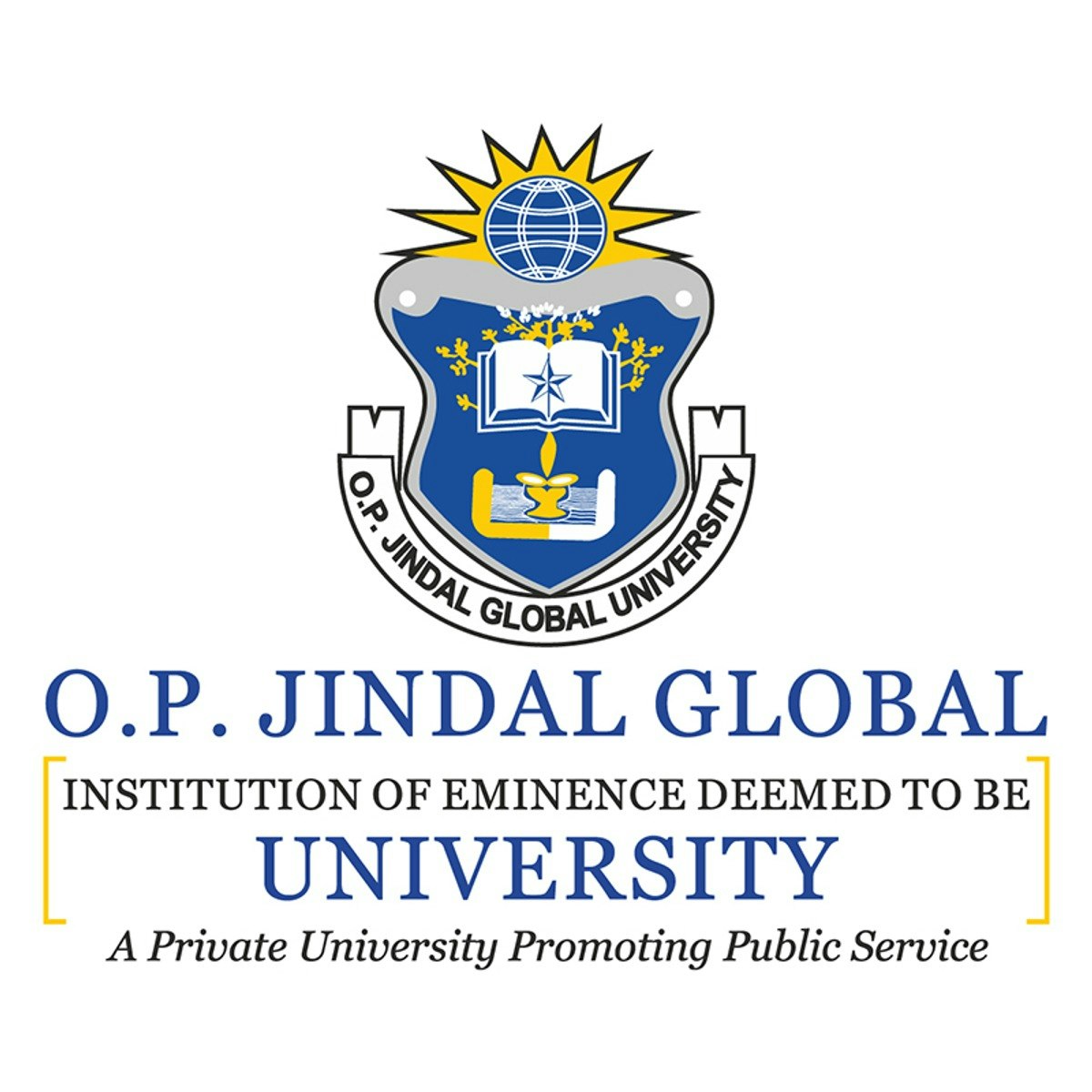Public Policy Manager
Navigating the Landscape of Public Policy Management
Public Policy Management is a dynamic and critical field centered on the development, implementation, and evaluation of policies designed to address societal issues and guide organizational conduct. Professionals in this domain work at the intersection of government, non-profit organizations, and the private sector, striving to create and modify laws, regulations, and programs that shape our communities. A Public Policy Manager directs and oversees how these legislative and organizational measures are put into practice, often managing teams of researchers and analysts to achieve these goals.
Working as a Public Policy Manager can be intellectually stimulating and deeply rewarding. Imagine the excitement of dissecting complex societal problems, from healthcare access to environmental protection, and crafting viable solutions. Consider the engagement involved in collaborating with diverse stakeholders – government officials, community leaders, industry experts, and the public – to build consensus and drive meaningful change. The opportunity to see your work translate into tangible improvements in people's lives and the functioning of society is a significant motivator for many in this field. Furthermore, the role often involves a strategic blend of research, advocacy, and project management, offering a varied and engaging day-to-day experience.
Key Responsibilities of a Public Policy Manager
The role of a Public Policy Manager is multifaceted, involving a blend of analytical rigor, strategic communication, and adept leadership. These professionals are pivotal in guiding how organizations and governmental bodies respond to and shape the regulatory and social landscape.
Policy Development and Analysis
A core function of a Public Policy Manager is the development and analysis of policies. This involves identifying societal or organizational problems, researching potential solutions, and evaluating the likely impacts of different policy options. Managers in this role often lead teams to gather and synthesize data, assess the economic, social, and political feasibility of proposed policies, and draft clear, actionable policy documents. They must possess a strong understanding of research methodologies and be able to translate complex findings into understandable recommendations for decision-makers. This analytical work forms the bedrock of sound policy-making, ensuring that decisions are evidence-based and well-considered.
To excel in policy development and analysis, a grasp of economic principles, statistical analysis, and legal frameworks is often necessary. Managers must also stay abreast of current events, emerging trends, and relevant research in their specific policy domain. The ability to think critically and anticipate potential unintended consequences of policy actions is a hallmark of an effective Public Policy Manager. They are constantly working to refine existing policies and propose new ones to better achieve desired outcomes, whether that's improving public health, fostering economic growth, or promoting social equity.
For those looking to build a strong foundation in policy analysis and development, several online courses can provide valuable knowledge and skills. Understanding how to use data and evidence is crucial in this field.
Stakeholder Engagement and Advocacy
Engaging with a wide array of stakeholders is a critical responsibility for Public Policy Managers. These stakeholders can include government officials, legislators, industry representatives, non-profit organizations, community groups, and the general public. Effective engagement involves building relationships, understanding diverse perspectives, and fostering collaborative dialogue to ensure that policies are well-informed and enjoy broad support. This often requires strong interpersonal and negotiation skills.
Advocacy is another key component of this responsibility. Public Policy Managers frequently represent their organization's interests to policymakers and the public, advocating for specific policy positions. This might involve preparing briefing materials, delivering presentations, testifying before legislative committees, or managing public awareness campaigns. The ability to communicate persuasively, both in writing and verbally, is paramount. They must be adept at translating complex policy issues into clear, compelling messages tailored to different audiences.
Successfully navigating the landscape of stakeholder interests often requires a nuanced understanding of political dynamics and the ability to find common ground among parties with conflicting views. This aspect of the role is crucial for translating policy proposals into adopted and implemented actions. Online resources can help develop the communication and strategic skills needed for effective advocacy.
The following books delve deeper into the process of policy analysis and stakeholder engagement, offering valuable insights for aspiring and current professionals.
Monitoring Regulatory Compliance and Impact Assessment
Once policies are implemented, the work of a Public Policy Manager continues with monitoring regulatory compliance and assessing the policy's impact. This involves tracking how well the policy is being followed and whether it is achieving its intended goals. It may require developing metrics, collecting data, and analyzing results to determine the effectiveness and efficiency of the policy.
Impact assessment also involves identifying any unintended consequences, positive or negative, that have arisen from the policy. This information is crucial for making informed decisions about whether to continue, modify, or terminate a policy. Public Policy Managers must be skilled in evaluation methodologies and be able to report their findings clearly to leadership and other stakeholders. This continuous feedback loop is essential for adaptive policymaking and ensuring that public resources are used effectively.
This responsibility underscores the iterative nature of public policy. It's not enough to simply create a policy; effective managers ensure that policies remain relevant and effective over time by diligently monitoring their real-world effects and advocating for necessary adjustments. Understanding regulatory frameworks and the tools for evaluating policy outcomes are key skills in this area.
Core Skills and Competencies
Success as a Public Policy Manager hinges on a robust set of skills and competencies that enable them to navigate the complex world of policy development and implementation. These abilities are crucial for transforming ideas into impactful actions and for leading teams effectively.
Analytical and Critical Thinking
Analytical and critical thinking are foundational to the work of a Public Policy Manager. These professionals must be adept at dissecting complex problems, identifying underlying causes, and evaluating diverse sources of information. This includes the capacity to analyze data, understand statistical findings, and assess the potential consequences of different policy options. Critical thinking allows managers to question assumptions, identify biases, and develop well-reasoned arguments for their policy recommendations.
These skills are applied throughout the policy cycle, from the initial identification of an issue to the evaluation of a policy's effectiveness. For example, when faced with a pressing social problem, a Public Policy Manager uses analytical skills to understand its scope and drivers, and critical thinking to evaluate the strengths and weaknesses of proposed interventions. This ensures that policy decisions are based on sound evidence and logical reasoning rather than intuition or anecdote.
Many online courses focus on developing these essential cognitive skills. Courses covering research methods, data analysis, and logical reasoning can be particularly beneficial.
Communication and Negotiation Skills
Exceptional communication skills are indispensable for Public Policy Managers. They must be able to convey complex information clearly, concisely, and persuasively to a variety of audiences, including policymakers, technical experts, and the general public. This includes strong written communication skills for drafting policy briefs, reports, and legislative proposals, as well as articulate verbal communication skills for presentations, meetings, and public speaking engagements.
Negotiation is another critical competency. Public Policy Managers often act as intermediaries between different interest groups, each with its own agenda and priorities. The ability to facilitate constructive dialogue, build consensus, and navigate conflicts is essential for achieving policy goals. This requires active listening, empathy, and the capacity to find mutually agreeable solutions. Effective negotiation can mean the difference between a policy proposal stalling due to opposition and it moving forward with broad support.
Developing these communication and negotiation abilities can be enhanced through targeted training and practice. Consider exploring resources that focus on public speaking, persuasive writing, and conflict resolution techniques. OpenCourser offers a variety of courses in Communication Studies that can help hone these vital skills.
These books offer guidance on effective communication and understanding the policy process, which inherently involves negotiation.
Leadership and Project Management
Public Policy Managers often lead teams of analysts, researchers, and administrative staff, making leadership skills crucial. Effective leadership in this context involves setting a clear vision, motivating team members, delegating tasks appropriately, and fostering a collaborative work environment. It also means providing guidance and support to team members, helping them develop their own skills and expertise.
Strong project management capabilities are also vital. The development and implementation of public policy can be viewed as complex projects with specific goals, timelines, and budgets. Public Policy Managers are frequently responsible for overseeing these projects from inception to completion. This includes planning project activities, managing resources, identifying and mitigating risks, and ensuring that deliverables are met on time and within budget. Familiarity with project management methodologies can be a significant asset.
Aspiring managers should seek opportunities to develop their leadership and project management skills, perhaps through volunteer work, leading student organizations, or taking on increasing responsibility in their current roles. Online courses in leadership and project management can also provide structured learning and practical tools.
Education Pathways: Formal Education
Embarking on a career as a Public Policy Manager typically involves a solid educational foundation. Formal academic programs provide the theoretical knowledge, analytical skills, and often the initial network needed to enter and advance in this field.
Relevant Undergraduate and Graduate Degrees
A bachelor's degree is generally considered the minimum educational requirement for entry-level positions in public policy. Common undergraduate majors include Public Policy, Political Science, Economics, Sociology, Public Administration, and International Relations. These programs typically provide a broad understanding of governmental structures, political processes, economic principles, and societal issues. Some individuals may also pursue a law degree, particularly if they are interested in the legal aspects of policy formation.
For more advanced roles, including Public Policy Manager positions, a master's degree is often preferred or even required. Popular graduate degrees include a Master of Public Policy (MPP), Master of Public Administration (MPA), Master of Arts (MA) in a relevant social science, or a Master of Business Administration (MBA) with a focus on public or non-profit management. These advanced degrees offer more specialized knowledge, in-depth analytical training, and opportunities for focused research. For example, according to the U.S. Bureau of Labor Statistics, while some policy-related roles can be entered with a bachelor's degree, advanced degrees are common, especially for positions requiring specialized research or leadership. You can explore various degree fields relevant to public policy and social services on the BLS website.
These foundational courses offer an introduction to the concepts and frameworks central to public policy education.
For a comprehensive understanding of public policy, these texts are often considered essential reading in academic programs.
Certifications and Specializations
While not always mandatory, professional certifications can enhance a Public Policy Manager's credentials and demonstrate specialized expertise. Certifications might focus on areas like policy analysis, public administration, project management, or specific policy sectors such as healthcare or environmental policy. These are often pursued by professionals looking to deepen their knowledge in a particular niche or to gain a competitive edge in the job market.
Some universities and professional organizations offer graduate certificate programs designed for practitioners seeking to upgrade their skills or specialize. These programs are typically shorter than full master's degrees and focus on practical, applied knowledge. For example, a certificate in data analysis for public policy could equip managers with the skills to leverage data more effectively in their work. Specializing in a high-demand area, such as technology policy or sustainable development, can also open up unique career opportunities.
Exploring specialized areas through focused coursework can be a valuable investment. These courses touch upon specific applications and considerations within public policy.
Internships and Practicums for Hands-On Experience
Hands-on experience is invaluable in the field of public policy. Internships and practicums provide students and early-career professionals with the opportunity to apply their academic learning in real-world settings. These experiences can be found in government agencies, non-profit organizations, think tanks, advocacy groups, and even private sector companies with public affairs departments.
During an internship, individuals might assist with research, policy analysis, legislative tracking, event organization, or communications. This practical exposure helps develop essential skills, build a professional network, and gain a deeper understanding of the day-to-day realities of policy work. Many educational programs incorporate or strongly encourage internships as part of their curriculum. Securing a relevant internship can significantly improve a candidate's job prospects upon graduation and provide clarity on specific career interests within the broad field of public policy.
While not direct replacements for internships, project-based online courses can offer a taste of practical application and help build a portfolio of work. Look for courses that involve creating policy briefs, analyzing case studies, or developing advocacy plans.
Education Pathways: Online and Professional Development
For those seeking to enter public policy management or advance within the field, particularly career changers or working professionals, online education and ongoing professional development offer flexible and accessible routes to acquire necessary skills and knowledge. OpenCourser's extensive catalog, featuring thousands of online courses in Public Policy, can be an excellent starting point for this journey.
Online Courses in Policy Design and Data Analysis
Online courses have democratized access to high-quality education in policy design and data analysis, two critical skill sets for Public Policy Managers. Platforms like Coursera and edX, easily searchable on OpenCourser, host numerous courses from reputable universities and institutions worldwide. These courses can cover topics such as the fundamentals of policy analysis, statistical methods for policy evaluation, data visualization, and the use of software for data analysis (e.g., R or Python for data analysis). Learners can often study at their own pace, making it easier to balance education with work or other commitments.
These courses can be particularly beneficial for individuals looking to build foundational knowledge or deepen their expertise in specific analytical techniques. For instance, a course on behavioral economics can provide insights into how psychological factors influence decision-making and how these can be incorporated into policy design. Similarly, courses on econometrics can equip learners with the tools to assess the causal impact of policies. The ability to analyze data and present findings effectively is highly valued in the field.
Here are some online courses that can help you build essential skills in policy design and data analysis, crucial for aspiring Public Policy Managers.
These books provide in-depth knowledge on data analysis and its application in public policy, complementing online learning.
Workshops on Regulatory Frameworks
Understanding regulatory frameworks is essential for Public Policy Managers, as much of their work involves navigating, influencing, or implementing regulations. Workshops, whether online or in-person, can offer concentrated learning experiences on specific regulatory areas, such as environmental law, healthcare regulations, or financial compliance. These are often provided by professional associations, universities, or specialized training organizations.
Workshops can be an effective way to stay updated on changes in legislation and regulatory best practices. They often involve case studies, practical exercises, and interaction with experts and peers, providing valuable insights into the complexities of regulatory environments. For those new to a particular policy sector, a workshop can provide a rapid immersion into its key regulatory challenges and considerations. Keep an eye on the offerings from organizations like the Association for Public Policy Analysis & Management (APPAM) or the American Society for Public Administration (ASPA), which sometimes list or host such events.
While specific workshop listings are dynamic, courses focusing on the legal and institutional aspects of policy can provide a similar understanding of regulatory environments.
Self-Directed Projects to Build a Portfolio
For individuals looking to transition into public policy management, especially those without direct prior experience, self-directed projects can be a powerful way to build a portfolio and demonstrate relevant skills. This could involve conducting an independent research project on a local policy issue, writing a white paper on a topic of interest, developing a policy proposal for a hypothetical scenario, or analyzing publicly available data to shed light on a social problem.
These projects allow learners to apply the knowledge gained from online courses or workshops in a practical context. A well-executed project can showcase analytical abilities, research skills, policy understanding, and communication proficiency to potential employers. For example, one might analyze the impact of a new local ordinance and present findings in a report or blog post. Sharing such work on platforms like LinkedIn or a personal website can increase visibility and credibility. This proactive approach can be particularly encouraging for career changers, as it provides tangible evidence of their commitment and capabilities in the public policy domain.
Creating a portfolio is a journey of showcasing your skills. Even if you're just starting, remember that every piece of analysis or well-researched proposal adds to your credibility. Don't be afraid to tackle issues you're passionate about; your enthusiasm will shine through in your work.
Career Progression for Public Policy Managers
The career path for a Public Policy Manager often involves a progression through roles with increasing responsibility, scope, and strategic importance. Understanding this trajectory can help aspiring professionals plan their development and identify opportunities for growth within government, non-profit organizations, or the private sector.
Entry-Level Roles (e.g., Policy Analyst)
Many Public Policy Managers begin their careers in entry-level positions such as Policy Analyst, Research Assistant, Legislative Aide, or Program Coordinator. In these roles, individuals typically focus on specific tasks like conducting research, gathering and analyzing data, drafting policy memos or briefs, tracking legislation, and supporting senior staff. These positions provide foundational experience in the mechanics of policy work and an opportunity to develop core analytical and communication skills.
A bachelor's degree in a relevant field is often sufficient for these entry-level roles, although a master's degree can provide a competitive advantage or lead to slightly more responsibility from the outset. During this stage, gaining exposure to different policy areas and building a strong professional network are crucial for future advancement. It's a period of learning the ropes, understanding organizational dynamics, and demonstrating competence and reliability.
For those starting out, focusing on developing strong research and analytical skills is key. OpenCourser features many courses that can help build this foundation, easily discoverable through the search function.
Mid-Career Opportunities (e.g., Senior Policy Advisor)
With several years of experience and a proven track record, professionals can advance to mid-career roles such as Senior Policy Analyst, Senior Policy Advisor, Program Manager, or Legislative Manager. In these positions, individuals typically take on more responsibility, including leading research projects, developing policy recommendations with greater autonomy, managing small teams, and engaging more directly with stakeholders and policymakers.
A master's degree is often highly beneficial or even required for these roles, along with demonstrated expertise in a particular policy area. Strong analytical, communication, and project management skills are essential at this stage. Mid-career professionals are expected to provide strategic advice, manage complex policy issues, and contribute to shaping an organization's policy agenda. This phase often involves a deepening of specialized knowledge and an expansion of leadership responsibilities.
Professionals at this stage might consider courses that enhance strategic thinking, leadership, and advanced analytical techniques. Consider exploring Management courses on OpenCourser.
Leadership Roles (e.g., Director of Public Policy)
At the senior level, Public Policy Managers can progress to leadership roles such as Director of Public Policy, Vice President of Government Affairs, Chief Policy Officer, or Executive Director. These positions involve significant strategic responsibility, including setting the overall policy direction for an organization, managing large teams and budgets, representing the organization at high-level forums, and influencing major policy decisions at local, national, or even international levels.
Extensive experience, a strong record of achievement, and exceptional leadership and communication skills are prerequisites for these roles. Advanced degrees, such as a Master's or Doctorate, are common. Leaders in public policy must be adept at navigating complex political landscapes, building strategic alliances, and articulating a compelling vision. They are often responsible for the long-term impact and reputation of their organization's policy work. The journey to such a role is demanding, requiring continuous learning, networking, and a deep commitment to the field.
If you aspire to leadership, remember that every step in your career is a building block. The experience gained in earlier roles, the networks built, and the challenges overcome all contribute to preparing you for these significant responsibilities.
Challenges in Public Policy Management
The field of public policy management, while rewarding, is not without its significant challenges. Professionals must be prepared to navigate complex and often contentious environments to achieve their objectives and effect meaningful change.
Navigating Political and Stakeholder Conflicts
One of the most persistent challenges in public policy management is navigating the often-turbulent waters of political and stakeholder conflicts. Policy decisions rarely occur in a vacuum; they are shaped by competing interests, ideological differences, and varying power dynamics among stakeholders. Public Policy Managers must be adept at understanding these diverse perspectives, which can range from government agencies and elected officials to industry groups, advocacy organizations, and community members.
Successfully managing these conflicts requires exceptional negotiation, mediation, and communication skills. Managers often find themselves trying to build consensus among groups with diametrically opposed views or finding common ground where little seems to exist. The political landscape can shift rapidly, requiring managers to be adaptable and resilient. The pressure to satisfy multiple, often contradictory, demands can be intense, and achieving a policy outcome that is both effective and politically viable is a constant balancing act.
Understanding the dynamics of political systems and stakeholder engagement is crucial. Courses on political science and conflict resolution can be beneficial.
Adapting to Regulatory Changes
The regulatory environment is in a constant state of flux, driven by new legislation, court decisions, technological advancements, and evolving societal priorities. Public Policy Managers must continuously monitor these changes and adapt their strategies and operations accordingly. This requires a commitment to lifelong learning and staying abreast of developments in relevant legal and regulatory frameworks.
Adapting to regulatory changes can be resource-intensive, requiring organizations to update internal policies, retrain staff, or modify programs. For Public Policy Managers, this means not only understanding the letter of the law but also its practical implications for their organization or the communities they serve. They must be able to anticipate potential regulatory shifts and proactively prepare for them, as well as respond effectively when changes are implemented. This challenge is compounded in fields that are rapidly evolving, such as technology or environmental policy.
Staying informed about legal and regulatory developments is key. Following reputable news sources, academic journals, and publications from think tanks like the Brookings Institution or the RAND Corporation can be very helpful.
Balancing Short-Term vs. Long-Term Policy Impacts
A significant challenge for Public Policy Managers is the tension between addressing immediate needs and achieving long-term policy goals. Political cycles, budget constraints, and public pressure often prioritize short-term fixes or visible results. However, many complex societal problems, such as climate change, educational inequality, or public health crises, require sustained, long-term strategies and investments.
Public Policy Managers must often advocate for approaches that may not yield immediate benefits but are crucial for sustainable, long-term positive outcomes. This can be difficult when faced with demands for quick solutions or when resources are scarce. It requires strategic foresight, the ability to communicate the importance of long-term perspectives, and resilience in the face of potential impatience or skepticism. Balancing these competing time horizons effectively is a hallmark of sophisticated policy leadership.
This challenge highlights the need for strategic thinking and ethical considerations in policy-making. Exploring courses on sustainable development or strategic foresight might offer useful frameworks.
Ethical Considerations and Public Interest
The practice of public policy management is intrinsically linked with ethical considerations and a commitment to serving the public interest. Decisions made by Public Policy Managers can have profound impacts on individuals, communities, and society as a whole, making a strong ethical framework essential.
Ensuring Transparency and Accountability
Transparency and accountability are cornerstones of ethical governance and public policy. Public Policy Managers have a responsibility to ensure that policy-making processes are open to public scrutiny and that decision-makers are answerable for their actions. This involves providing clear and accessible information about policy proposals, the evidence supporting them, and their potential impacts. It also means establishing mechanisms for public input and feedback throughout the policy cycle.
Accountability requires that there are clear lines of responsibility for policy implementation and outcomes. This includes monitoring policy effectiveness, reporting on results, and being prepared to make adjustments if policies are not achieving their intended goals or are having unintended negative consequences. Upholding these principles helps to build public trust and legitimacy in the policy-making process. The American Society for Public Administration (ASPA) emphasizes accountability and performance as core values for public administrators.
Courses focusing on governance and ethics can provide a deeper understanding of these principles.
These books delve into the ethical responsibilities inherent in public policy and the importance of stakeholder engagement and societal impact.
Addressing Equity and Social Justice
A critical ethical consideration in public policy management is the pursuit of equity and social justice. Policies can have differential impacts on various population groups, and managers have a responsibility to analyze and address potential inequities. This means considering how policies might affect marginalized or vulnerable communities and actively working to design policies that promote fairness, reduce disparities, and advance social justice.
This requires a deep understanding of the social, economic, and historical factors that contribute to inequality. Public Policy Managers should strive to incorporate diverse perspectives into the policy-making process and use data to identify and mitigate potential biases. The goal is to create policies that not only solve problems but do so in a way that benefits all members of society, particularly those who have been historically disadvantaged. This commitment to equity is a defining feature of ethical public service.
Understanding social justice issues is vital for any policy professional. Courses in sociology, gender studies, or critical race theory can provide valuable context.
Managing Conflicts of Interest
Managing conflicts of interest is a fundamental ethical duty for Public Policy Managers. A conflict of interest arises when a manager's personal interests – or the interests of their family, friends, or associates – could potentially influence their professional judgment or actions in a way that is not aligned with the public interest or their organization's mission.
To maintain public trust and the integrity of the policy process, managers must be vigilant in identifying, disclosing, and managing any potential or actual conflicts of interest. This often involves adhering to strict ethical codes of conduct and organizational policies. Transparency is key; even the appearance of a conflict of interest can undermine credibility. Ethical leadership demands that Public Policy Managers prioritize the public good above personal gain and make decisions impartially and objectively.
Navigating these situations requires a strong moral compass and a clear understanding of ethical guidelines. Many professional organizations in public administration and policy provide resources and training on ethical conduct.
Global Impact and International Opportunities
In an increasingly interconnected world, the work of Public Policy Managers often extends beyond national borders. Globalization, international cooperation, and cross-border challenges create both opportunities and complexities for those in the field.
Globalization’s Influence on Policy-Making
Globalization – the increasing interconnectedness of economies, societies, and cultures – has a profound influence on domestic and international policy-making. Issues such as climate change, pandemics, economic crises, migration, and cybersecurity transcend national boundaries and require coordinated international responses. Public Policy Managers must increasingly consider these global interdependencies when developing and implementing policies, even those that seem primarily domestic in scope.
This requires an understanding of international relations, global governance structures, and the ways in which policies in one country can affect others. For instance, trade policies, environmental regulations, and public health initiatives often have significant international dimensions. Managers may need to analyze international best practices, engage with international data, and consider the implications of global agreements and treaties on their work.
For those interested in the global aspects of policy, courses in international relations, global studies, or comparative public policy can be very enlightening. You can find relevant options by browsing the International Studies category on OpenCourser.
Working with International Organizations
Opportunities exist for Public Policy Managers to work with or alongside international organizations such as the United Nations (UN), the World Bank, the World Health Organization (WHO), regional development banks, and international non-governmental organizations (NGOs). These organizations play crucial roles in addressing global challenges, promoting development, and setting international norms and standards.
Working in such an environment often requires specialized knowledge in areas like international development, human rights, global health, or environmental policy, as well as strong cross-cultural communication and diplomatic skills. Roles can range from policy research and analysis to program management and advocacy on a global scale. Experience with these organizations can be highly valuable, offering a unique perspective on policy issues and the complexities of international cooperation.
Gaining experience in international affairs can be a stepping stone to these roles. Consider looking for courses that focus on international institutions or global governance.
Cultural Sensitivity in Policy Implementation
When policies are implemented in diverse cultural contexts, or when they affect different cultural groups, cultural sensitivity is paramount. What works effectively in one cultural setting may not be appropriate or successful in another. Public Policy Managers involved in international work, or even in diverse domestic settings, must develop a keen awareness of and respect for cultural differences.
This involves understanding how cultural values, beliefs, norms, and practices can influence how policies are perceived, accepted, and ultimately, how they impact communities. Effective cross-cultural policy implementation often requires adapting approaches, engaging with local leaders and community members, and ensuring that communication is culturally appropriate. A lack of cultural sensitivity can lead to policy failure, unintended negative consequences, and a breakdown of trust between policymakers and the communities they aim to serve. This skill is increasingly critical in our globalized world.
Developing cultural competence is an ongoing process. Learning languages, studying anthropology or sociology, and gaining international experience can all contribute to this.
Frequently Asked Questions (FAQs)
This section addresses some common questions that individuals exploring a career as a Public Policy Manager may have. The answers aim to provide concise and helpful insights.
What education is required to become a Public Policy Manager?
Typically, a bachelor's degree in fields like public policy, political science, economics, or public administration is the minimum requirement for entry-level policy roles. However, for a Public Policy Manager position, which often involves more responsibility and leadership, a master's degree (such as an MPP or MPA) is highly preferred and often required by employers. Some managers may also have law degrees or PhDs, especially in research-intensive or highly specialized areas.
How does technology impact policy management?
Technology significantly impacts policy management in numerous ways. It provides powerful tools for data collection, analysis, and visualization, enabling more evidence-based policymaking. Digital platforms facilitate communication and engagement with stakeholders and the public. Furthermore, technology itself is increasingly a subject of public policy, with managers needing to address issues related to data privacy, cybersecurity, artificial intelligence ethics, and the digital divide. Governments are also using tech to improve service delivery and transparency.
What industries hire Public Policy Managers?
Public Policy Managers are employed across various sectors. Government agencies at the federal, state, and local levels are major employers. Non-profit organizations and advocacy groups rely on policy managers to advance their missions. Think tanks and research institutions hire them to conduct policy analysis. Additionally, private sector companies, particularly larger corporations and those in regulated industries (like tech, energy, healthcare), employ Public Policy Managers or Government Affairs Managers to navigate regulatory landscapes and advocate for their interests.
Is international experience necessary?
While not always a strict requirement for all Public Policy Manager roles, international experience can be highly valuable, especially for positions dealing with global issues or in organizations with an international scope. Experience working or studying abroad, knowledge of foreign languages, and an understanding of different cultural and political systems can be significant assets. For roles specifically in international organizations or focusing on foreign policy, such experience may be essential.
How to transition into policy management from another field?
Transitioning into policy management from another field is certainly possible and can bring valuable diverse perspectives. Key steps include identifying transferable skills such as analytical thinking, project management, communication, and research. Acquiring relevant knowledge through formal education (like a master's degree or certificate in public policy) or online courses can bridge gaps. Gaining practical experience through volunteering, internships (if feasible), or taking on policy-related projects in a current role can be very beneficial. Networking with professionals in the policy field and tailoring your resume to highlight policy-relevant experiences are also crucial. Be prepared to articulate how your previous experience provides a unique and valuable perspective to policy work.
This path requires dedication, but your unique background can be a strength. Focus on how your existing skills can be an asset in the policy world, and don't hesitate to seek informational interviews to learn more from those already in the field. The journey might feel challenging, but each step, like completing a relevant online course or a volunteer project, builds your credibility and moves you closer to your goal.
What are the emerging trends in the field?
Several trends are shaping public policy management. The increasing use of big data and artificial intelligence in policy analysis and decision-making is a major development. There's a growing emphasis on evidence-based policy and rigorous impact evaluation. Issues like climate change, cybersecurity, and global health security are demanding more attention and innovative policy solutions. Furthermore, there's a greater focus on equity, social justice, and public engagement in the policy process, as well as the ethical implications of new technologies.
Conclusion
A career as a Public Policy Manager offers a path to contribute meaningfully to society by shaping the laws, regulations, and programs that affect us all. It demands a robust combination of analytical prowess, strong communication abilities, ethical grounding, and effective leadership. While the journey involves rigorous education and the navigation of complex challenges, the opportunity to drive positive change and address critical societal issues can be immensely fulfilling. Whether you are a student charting your course, a professional considering a pivot, or someone looking to deepen their impact, the field of public policy management presents a dynamic and significant arena for ambitious individuals. With dedication and continuous learning, particularly through accessible resources like those found on OpenCourser, aspiring Public Policy Managers can equip themselves to make a lasting difference.















